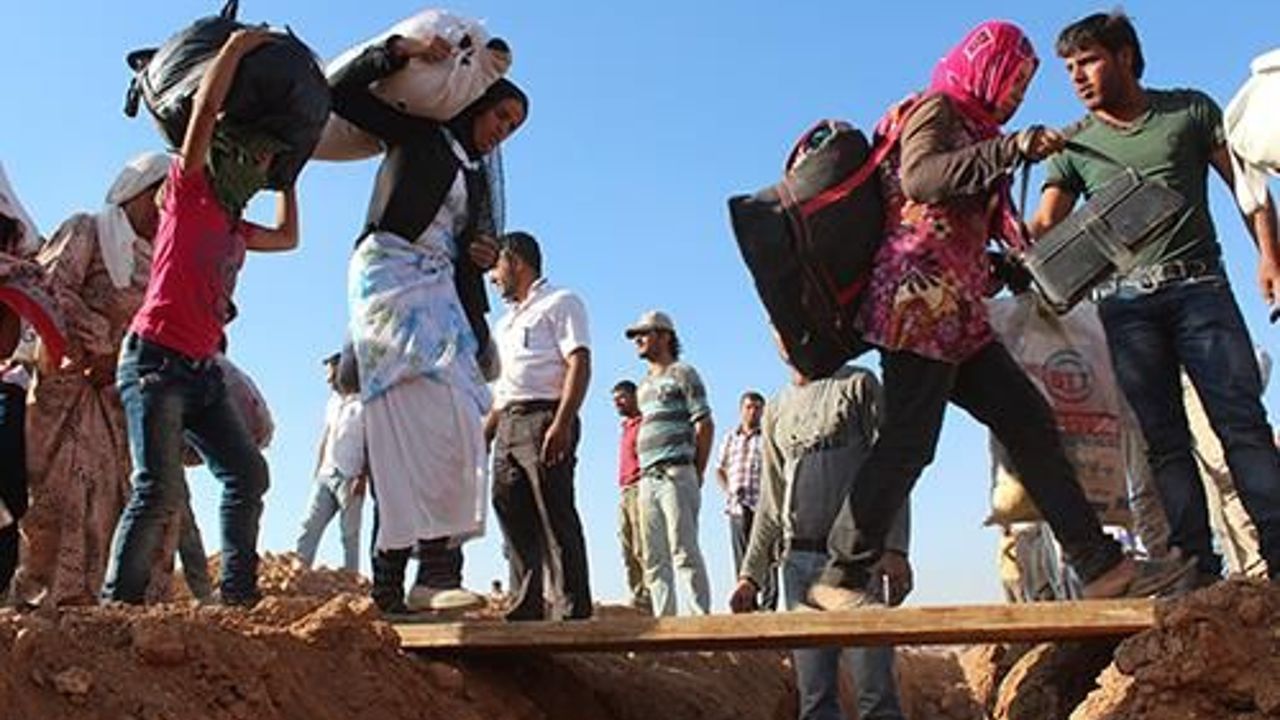United Nations: 70,000 Syrians crossed into Turkey in 24 hours
World |
Hundreds of thousands more refugees are expected to arrive Turkey over the coming days, as Syrian Kurds are fleeing ISIL in the northern Syrian city of Kobani, U.N. refugee agency warns.

Font Size:
An estimated 70,000 Syrians crossed into Turkey in 24 hours on Friday and Saturday, and hundreds of thousands more refugees are expected to arrive over the coming days, as Syrian Kurds flee the Islamic State of Iraq and the Levant (ISIL), the U.N. refugee agency UNHCR has warned.
"Turkish government authorities and UNHCR are preparing for the possibility of hundreds of thousands more refugees arriving over the coming days, as the battle for the northern Syrian city of Kobani (or Ayn al-Arab) forces more people to flee, UNCHR said in a statement late on Saturday.
I commend Turkeys welcoming response to offer refuge and aid to this population so suddenly and violently driven from their homes in fear for their lives, Antonio Guterres, the UN High Commissioner for Refugees, said.
Syrians have arrived in the Turkish province of Sanliurfa in massive numbers after ISILs recent attacks and siege of Kobani, which hosts nearly 200,000 internally displaced people mainly from Syrias Kurdish minority. ISIL continues to clash with forces of pro-Kurdish Democratic Union Party in Tell Abyad and Kobani.
The refugees, including women and children, are crossing the border by first entering an area built by the Prime Ministry Disaster and Emergency Management Presidency in Sanliurfa's Suruc district. They undergo a medical examination in the coordination center within the area and are registered.
UNHCR also noted that Turkey has been accelerating the construction of two camps for new arrivals. Turkey currently hosts at least 847,266 Syrian refugees, according to U.N. figures.
"Turkish government authorities and UNHCR are preparing for the possibility of hundreds of thousands more refugees arriving over the coming days, as the battle for the northern Syrian city of Kobani (or Ayn al-Arab) forces more people to flee, UNCHR said in a statement late on Saturday.
I commend Turkeys welcoming response to offer refuge and aid to this population so suddenly and violently driven from their homes in fear for their lives, Antonio Guterres, the UN High Commissioner for Refugees, said.
Syrians have arrived in the Turkish province of Sanliurfa in massive numbers after ISILs recent attacks and siege of Kobani, which hosts nearly 200,000 internally displaced people mainly from Syrias Kurdish minority. ISIL continues to clash with forces of pro-Kurdish Democratic Union Party in Tell Abyad and Kobani.
The refugees, including women and children, are crossing the border by first entering an area built by the Prime Ministry Disaster and Emergency Management Presidency in Sanliurfa's Suruc district. They undergo a medical examination in the coordination center within the area and are registered.
UNHCR also noted that Turkey has been accelerating the construction of two camps for new arrivals. Turkey currently hosts at least 847,266 Syrian refugees, according to U.N. figures.
Similar News
Video News

WORLD
26 Mart 2024 - 11:18
Photo News






